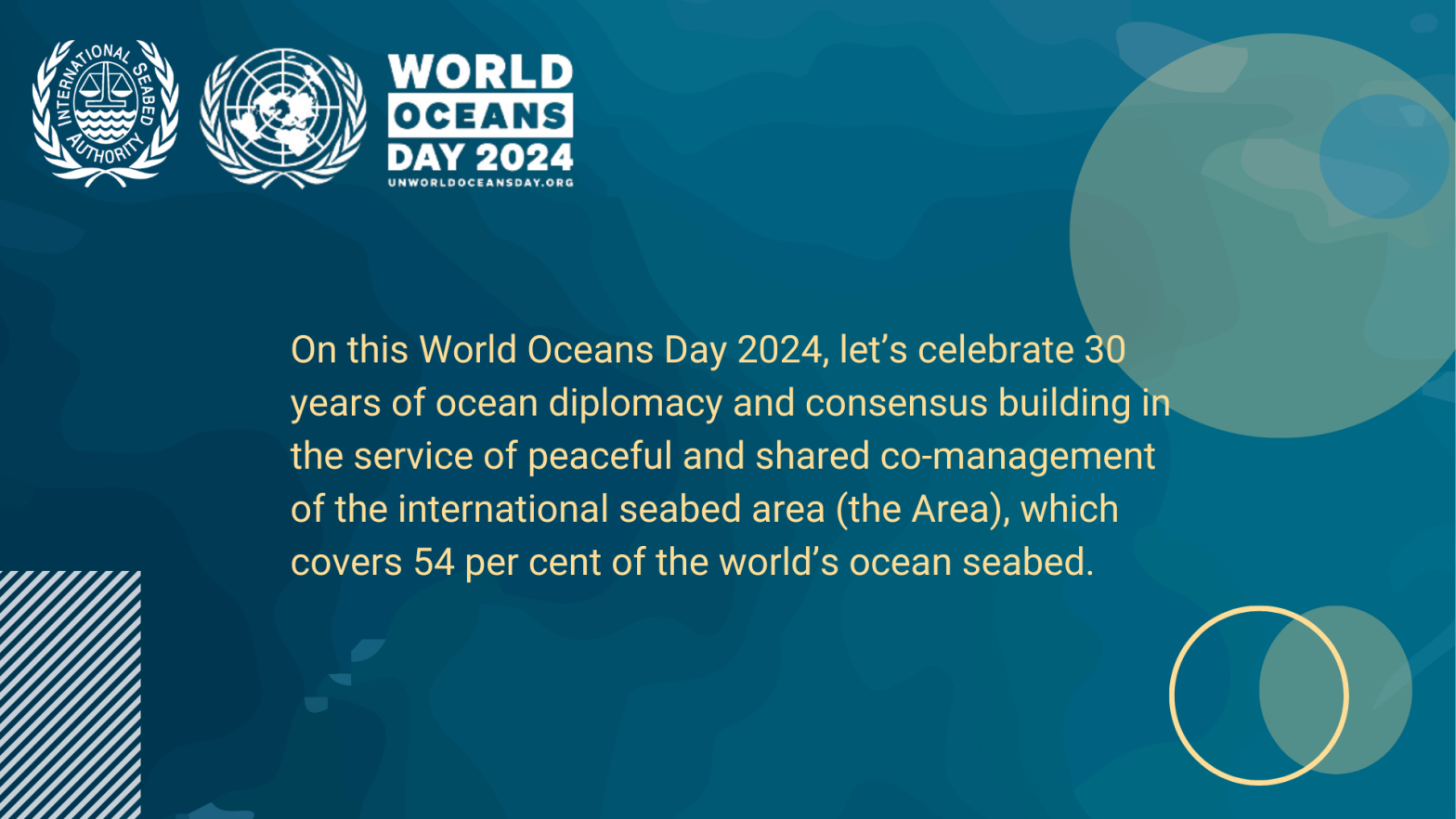On this World Oceans Day 2024, let’s celebrate 30 years of ocean diplomacy and consensus building in the service of peaceful and shared co-management of the international seabed area (the Area), which covers 54 per cent of the world’s ocean seabed.
This year, we also celebrate 30 years since the entry into force of the United Nations Convention on the Law of the Sea (UNCLOS) thanks to the adoption of the 1994 Agreement relating to the implementation of Part XI of UNCLOS. It is important to recognize the fundamental role this treaty has placed for promoting legal order and peace in the oceans.
The International Seabed Authority (ISA) plays a crucial role within that framework. As the international organization tasked with organizing and controlling activities in the Area, protecting the marine environment and promoting and encouraging marine scientific research for the benefit of all, ISA is a fundamental pillar of the ocean governance architecture.
UNCLOS’s extraordinary success in establishing a system for the shared management of the global commons strikes an effective balance between the rights of all States to explore and exploit natural resources and the interest of the international community to protect and preserve the marine environment and share the benefits of natural resources.
For the last 30 years, ISA has carried with it a collective vision of how the international community could come together to manage a shared space and resource for the benefit of all humanity. For that reason, its unique role and mandate place it at the centre of any discussion about the effectiveness of multilateralism and the rule of law for the global ocean more than ever.
I remain confident that the remarkable progress made by our Members to give life to this ideal of solidarity and equity for all humanity gives us hope and reinforces our trust in our ability to address any complex challenges our world must face today.
This is notably reflected in the crucial role that ISA is playing today in promoting and encouraging much-needed scientific research in marine areas beyond national jurisdictions, building a legacy for current and future generations and broadening public knowledge and understanding of the deep-sea environment and its ecosystems. This research is essential to ensure the effective protection of the marine environment and sustainable use of ocean resources, benefiting all humanity. Since 2001, more than USD300 million have been invested by exploration contractors through ISA on environmental baseline studies covering a wide range of deep-sea ecosystems from abyssal plains to mid-ocean ridges and seamounts.
The collective effort of ISA contractors and taxonomists has led to a fourfold increase in the number of described species in the region in five years where over 150 new taxonomic descriptions were published between 2015 and 2020. The collected environmental data are available to all through our open database, DeepData, which currently hosts over 130,000 records of biological organisms. These and other data are shared with the Ocean Biodiversity Information System, the OBIS, of IOC-UNESCO through the ISA OBIS Node.
Years of hard work on the front lines of international diplomacy, supported by the best available scientific evidence, mean that every year, more concrete steps are taken to work together, collectively and in a spirit of multilateralism, to take the measures necessary to manage natural resources effectively for the benefit of humanity as a whole.
Together with our Member States and all our partners, we remain more committed than ever to redouble our efforts to ensure that, collectively, the environmental protection of the Area remains at the core of our work to manage the invaluable resources of the deep sea sustainably. A prosperous and sustainable future for all humanity is achievable through united actions.
About ISA
ISA is an autonomous international organization mandated by the United Nations Convention on the Law of the Sea to protect the seabed for the shared benefit of humankind. ISA is committed to the principle that all nations of the world should benefit from responsible, sustainable and regulated economic activities in the deep seabed, including deep seabed mining and from the potential resources the deep seabed holds for a global green transition. The ISA works to ensure that the voices of all states and stakeholders, including developing states, civil society organizations and all ISA Member States, are effectively heard in discussions around the sustainable development of the deep seabed.
For media enquiries, please contact:
Mr. Philip Janikowski, Communications Specialist, ISA, pjanikowski@isa.org.jm


